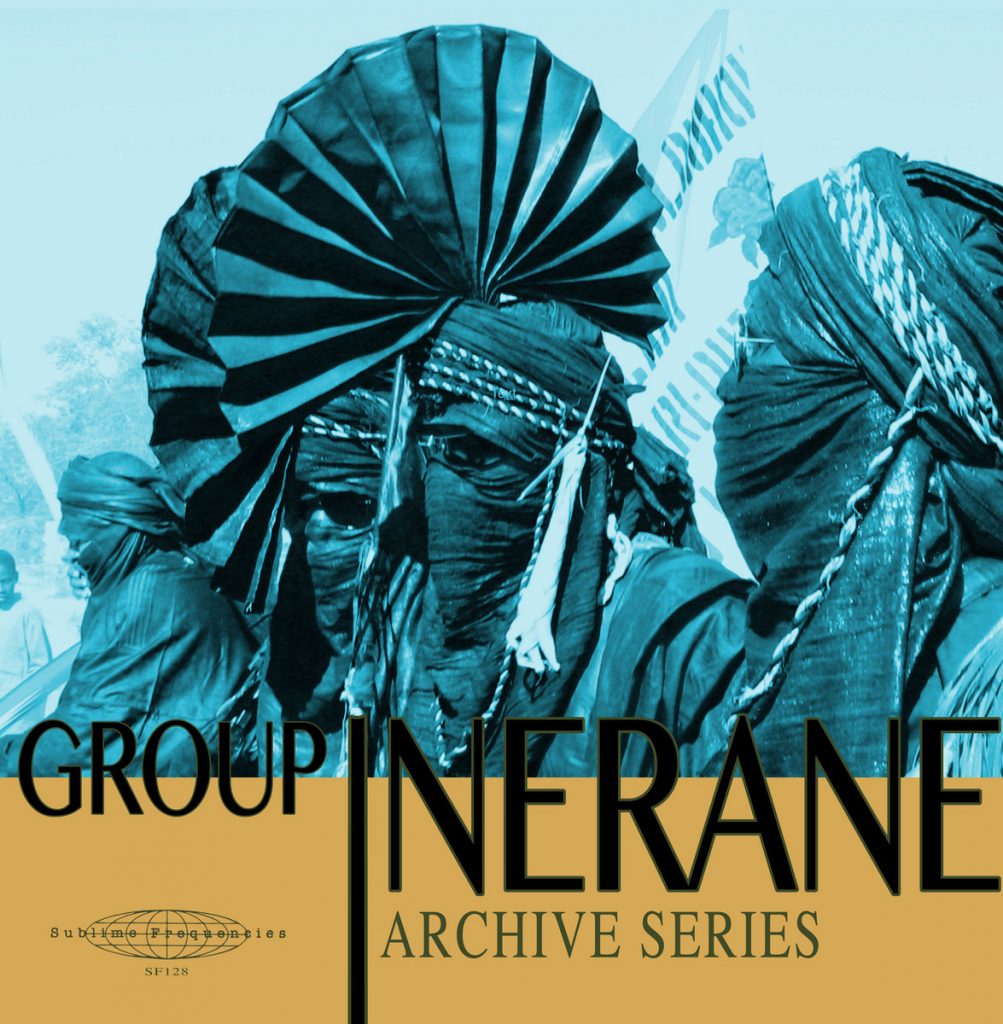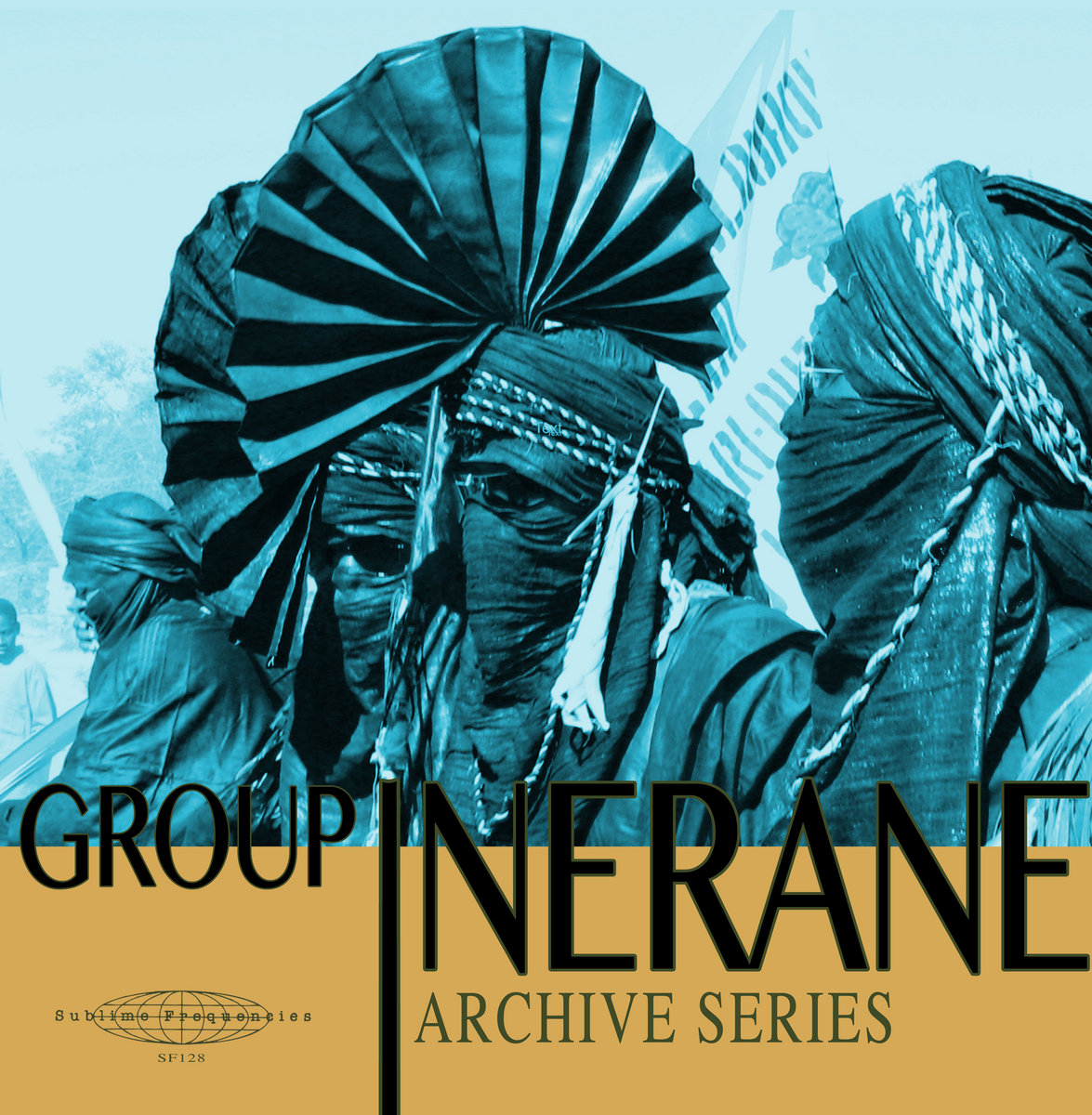
Group Inerane was part of a wave of bands that reset the defaults for northwest African guitar music a couple decades ago. Its members belonged to a scene of Tamachek (Tuareg) musicians who coalesced around Agadez, Niger and other desert towns. The music they created was brought to non-African ears by the Sublime Frequencies and Sahel Sounds labels. Collectively, these groups presented a rawer, higher-energy mode of play than Tinariwen or Ali Farka Touré that favored galloping drum beats and in-the-red guitar tones. But while contemporaries such as Bombino, Mdou Moctar and Etran de L’Aïr went on find audiences in Europe and the U.S., Group Inerane packed it in early in 2012 after guitarist Koudede Maman died in a car accident.
That could have been the end of Groyp Inerane’s story, but Marhajan Bianou has just been released to inaugurate Sublime Frequencies’ Archive Series. Assembled from live tapes made during Group Inerane’s sole European tour in November 2011, it is the best-sounding and most cohesive thing the band produced. Group Inerane’s other LPs were recorded under rough circumstances in Niger. Guitars From Agadez (Music Of Niger) compiled work done over a few years by different lineups. The then-new edition of the band that recorded Guitars From Agadez Volume 3 in 2010 was a classic beat combo with founder Ibrahim “Bibi” Ahmed and Maman (who replaced Adi Mohammed, killed in the country’s civil unrest) on guitar, while Abdulai “Koutana” Mohamed and Mohamed “Lalo” Atchinguel played bass and drums, respectively.
Marhajan Bianou presents the same group that made Volume 3, but as a road-tested outfit that had developed a strong rapport. The unobstructed, mid-fi recording transmits enough room sound to convey the live vibe. The improved sonic quality is kind to the rhythm section, adding a solid bottom to its loping grooves. The guitarists fluidly swapped the tasks of supplying an unswerving rhythm or blues-scorched, burning leads. And the whole band sang, enabling Group Inerane to hold down vocal drones on “Ikabkaban” and throw exuberant pitchman commentary into the mix on “Warat Adounia.”
If this Group Inerane had been able to keep touring, the band could easily have staked out a position that encompassed Mdou Moctar’s message-oriented stance and Etran de L’Aïr’s non-stop wedding-party spirit. Instead, Maman died a few months after the European tour. Marhajan Bianou makes clear just what a disaster the group’s disbandment was. [Sublime Frequencies]
—Bill Meyer














